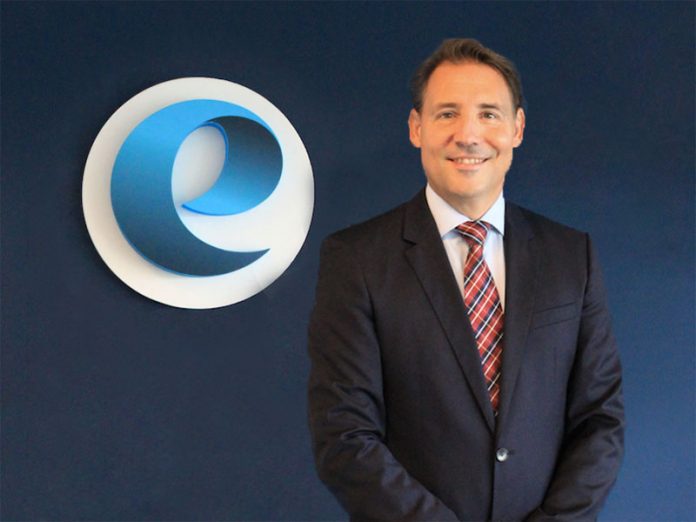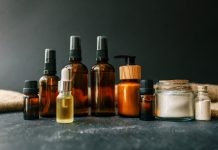How does a medium-sized company stand out in a highly concentrated market with rapidly increasing capital requirements? Eurodrug is an international pharmaceutical company active in more than 30 countries, with a differentiated portfolio and a unique business model. They follow a vision that has pushed them to create their own innovative products, developed in Europe and backed by European research. With more than 30 years of experience, the company is growing rapidly in ways that others are still experimenting with.
The pharmaceutical sector has the highest incidence of mergers and acquisitions, reshaping the industry as we know it. Merging large marketing and sales teams, R&D capabilities and production facilities enables “big pharma” to keep the power in their hands and enjoy economies of scale that make them extremely competitive. Being a “traditional” business, these firms seek innovation mainly in R&D, whereas their other departments (marketing, sales, manufacturing and distribution) often lack substantial innovative changes. This is confirmed by the fact that pharma companies devote a large part (around 17%) of their turnover to R&D purposes (which is high compared with other industries). This, combined with the increased costs resulting from the higher number and quality of clinical trials and tests that are required in order to register products, means that the need for financial capital is increasing. This puts up a significant barrier for SMEs and has pushed Eurodrug to innovate in different areas to allow them still to be committed to their original vision.
Eurodrug Laboratories is a privately owned company that has managed to become a key player in several therapeutic areas globally. The company was born from a vision that all countries in the world should have equal access to innovative top-quality medicines (in Eurodrug’s case, from Europe) without having to resort to generic forms. The backbone of this vision was created through operations driven by local people, building on their knowledge and network, while providing the market with products developed by Eurodrug. They implemented a low-fixed-cost business model and a shorter (less bureaucratic) lead time to new product commercialisation, and started to collaborate with both public and private R&D centres. Since the company’s founding in the early eighties, it has successfully brought its products to over 30 countries, predominantly throughout Asia, Latin America and CIS countries, with a focus on respiratory, paediatric, gastroenterology and women’s health.
Unique product development
One of Eurodrug’s latest developments, Diapo-Care®, is an excellent example of how their vision finds solutions that are often overlooked by others. Building on both their experience and network in paediatrics, they developed a unique product for a market without any real innovations in recent memory. Diapo-Care® is indicated for perianal dermatitis (or nappy rash, as most of us would call it), developed, researched and manufactured in the Netherlands. The product originated with the question: “Why, despite the many nappy rash creams out there, is there almost no baby that goes through its infant years without experiencing rash at least once (or more often for the unfortunate ones)?” It quickly became apparent that the current treatment options are aimed at treating the symptoms, instead of preventing the root cause, leading to an “after the fact” market. Together with researchers from both the Erasmus Medical Centre in Rotterdam and Groningen University Medical Centre, Eurodrug focused on finding a solution for the main culprit in causing nappy rash: protease enzymes. Fast-forwarding to development, the company partnered with a manufacturer that was able to isolate protease enzyme inhibitors from a natural source suitable for topical application and, more importantly, safe for baby skin. Of course, for Eurodrug, this product would not be complete without solid scientific evidence, performed in collaboration with research centres in both the UK and Netherlands. This run-of-the-mill (for Eurodrug) development has created a product that is effectively able to prevent and reduce inflammation of the skin, whilst restoring the skin where a rash has already occurred. At the time of writing, Diapo-Care® is patented and submitted for medical-device status in Europe. Although the product has already been launched in some of the company’s key markets, the aim is to find a global partner who also has expertise in markets where Eurodrug is not present, and is able to bring this product to the mass public, allowing both babies (and parents) to have one care less.
A remedy for the root cause
The above development is typical for Eurodrug Laboratories, where problems are looked at from a different angle in order provide the most effective solutions. The company does this not only for paediatrics, but also for a number of other therapeutic areas, as mentioned earlier. A prime example is their product for (alcoholic) fatty liver disease, an area that is sometimes difficult to diagnose, because patients often go asymptomatic until the disease has progressed to a later, sometimes even terminal, stage. How does Eurodrug address this? By offering a safe multifactorial remedy that has the ability to improve liver functions, while helping patients stay abstinent (because what good is a remedy if the cause of the problem is not treated?). A similar story applies to their product for the treatment of asthma and chronic obstructive pulmonary disease (COPD). Although the product has the key features needed to treat both indications (anti-inflammatory and bronchodilation), Eurodrug looked beyond the patient’s current standard treatment options, inhaled corticosteroids (ICS) often being the main alternative. However, ICS are also known to come with a number of side effects, especially in children. This logically led to the question, “How can we reduce the amount of ICS given to patients, while still maintaining disease control?” Their development plan included numerous studies on this subject (performed in the UK this time) and enabled them to create a product that can be prescribed safely alongside an ICS, but allowing the physician to lower the dose of the ICS while maintaining the same effect (control of asthma and COPD). As one can see, the safety aspect is something that Eurodrug takes very seriously, and quality of life is regarded as key during the creation of its products. Making sure this quality of life is available for everyone is the vision that this company started out with, and has not swerved from since.
Coming back to the initial question of how a medium sized company stands out in a business dominated by giants, one has to look at the “why” and the “how” to achieve this. Their vision (the “why”) has guided them to approach problems in such a way that the in-house developments they perform create unique and innovative products that meet previously unmet demands (addressing both the niche and mass markets). The way the industry is changing has pushed them also to innovate in areas like marketing, manufacturing, sales and distribution. Eurodrug started their business with a vision and, throughout more than 30 years of presence on more than three continents, they have been able to hold on to this core value (where many others have lost sight of it). This allows them to differentiate themselves, survive and, more importantly, thrive.
About the CEO
 Eelco Broersma is the CEO of Eurodrug Laboratories since August 2017. Prior to that he was CFO while simultaneously overseeing the Supply Chain and Human Resources departments for 9 years. Before joining Eurodrug, Mr. Broersma was CFO of Docs International (now Docs Global), an Executive Search company for the Healthcare industries, driving the European expansion. Before this he worked as a consultant for Akzo Nobel and as an auditor in the life sciences industry. He holds a degree in Business Economics from the University of Amsterdam.
Eelco Broersma is the CEO of Eurodrug Laboratories since August 2017. Prior to that he was CFO while simultaneously overseeing the Supply Chain and Human Resources departments for 9 years. Before joining Eurodrug, Mr. Broersma was CFO of Docs International (now Docs Global), an Executive Search company for the Healthcare industries, driving the European expansion. Before this he worked as a consultant for Akzo Nobel and as an auditor in the life sciences industry. He holds a degree in Business Economics from the University of Amsterdam.




































